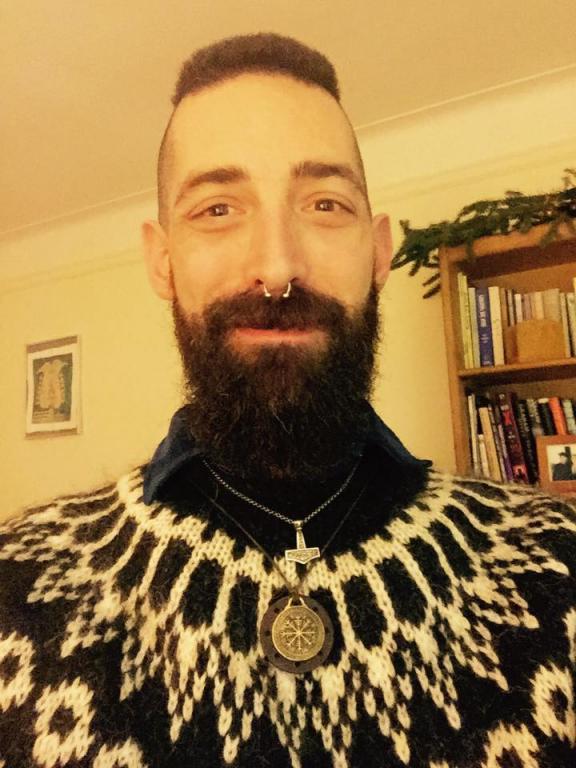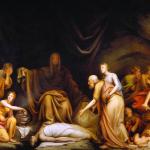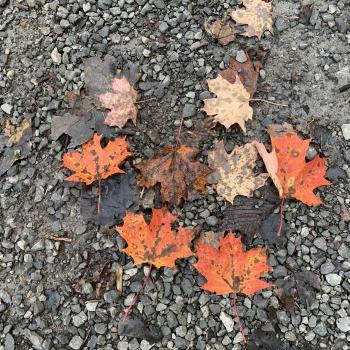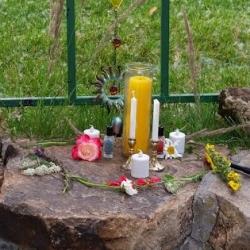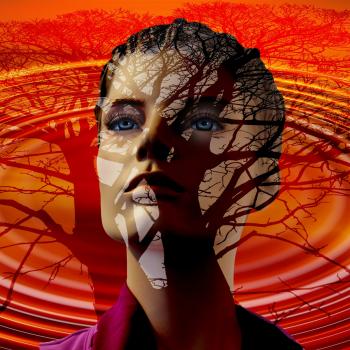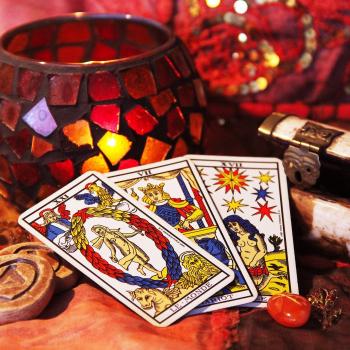I died this past Saturday, October the 27th, 2018; and at my death I thought of the indelible words of a famous Klingon: “perhaps today is a good day to die”; but what really transpired was my kindred’s Winternights.

Queue my “inner goth” – the daylight has waned, the air cools to a chill, and the leaves fall from the trees in a decadent dying display of decay. It most definitely is a good day to die.
Winternights (O.N = “Vetrnætr”) is one of the Heathen high days that observes the beginning of Winter and the start of the darker half of the year by honoring the Álfar – the male ancestors, and the Dísir – the female ancestors; it is particularly centered indoors around the hearth.
In order to observe this special time of year, my kindred and I had communed with our honored dead in a very intimate way…we “died”. Each person who was invited to this private engagement was required to write their own obituary; be it formal or comical, it was nonetheless intrical toward getting each attendee as step closer to “dying”.
To honor the Álfar, who are sometimes equated with “Vættir” – the spirits of the land, we ventured deep into Prospect Park in Brooklyn NY. Walking in the misty rain of what was supposed to be a Nor’Easter and between the soggy trees that bent their boughs with heavy dampness, it foreshadowed what we were there to do. Our destination was one of my favorite spots in the park. It is a small craggy ravine of moss-covered boulders that sloped sharply downward, with a small waterfall that trickled and formed a small creek. A stone bridge was made in order to cross it and it was here that we were to pass on.
Standing in a circle with candles in one hand and coins in the other, the obituaries began to be read. As each person’s obituary was read aloud, our Gyðja (Heathen priestess) cloaked as “Death” tapped the shoulder of the “deceased” and proceeded to walk them slowly across the bridge. Stopping midway, “Death” collected the coin which was a token to “skirt the underworld” – admittedly a tradition attributed more to the Hellenic “Ferryman” figure, the tokens in this instance were not tolls to “cross over” but were more the cost for a “visit”.
At this point the sounds of the other obituaries being read began to fade until they were nothing but a murmur from the other side of the bridge where all were silent; their lights extinguished.
Once on the other side it was quite surreal as I watched my fellow kinsmen and women being walked in the same manner and direction as myself. I smiled warmly at them as if welcoming them to the realm of the dead and assuring them that they were not alone, but among their kin.
Eventually all had died. It was then that “Death” began to lead us back through the forested park in silence. Even as we exited the park and returned to the noisy streets of New York City we continued marching silently past throngs of people getting off subways, boarding busses, sitting in outdoor cafes. Finally we reached the destination of our kinsman’s apartment where the darkness of the outdoors continued to linger, but when “Death” finally spoke. It guided us to think of time as a unit of mothers and be reminded of the different struggles of our maternal lineage (both of our blood and beyond our blood). Enter the Dísir – the ancestral mothers. And in the warmth of the home now lit by our candles and the nurturing hearthlight of the Dísir, we were reborn. Our first breath was singing to our mothers while intermittently speaking the names of our female ancestors in reverence. Finally, in a closing communal gesture we culminated our experience by reciting Čiūto (pronounced: “Chuto”) a well known (and easy) Sutartinės – a traditional Lithuanian polyphonic or harmonized song.
Feasting then followed our rather heavy observance, and boy does death make you hungry!
As we feasted, boasted, laughed, and commended each other on our self-written obituaries, I did sense something different that night. Though we have gathered before in merriment and camaraderie, this night we laughed louder and deeper.
I would like to think that was attributed to the connection we all had with one another as we prepare ourselves for the darkness of the coming winter months, and ready to be there for one another both in the silence of death and in the boisterous joy of living.


